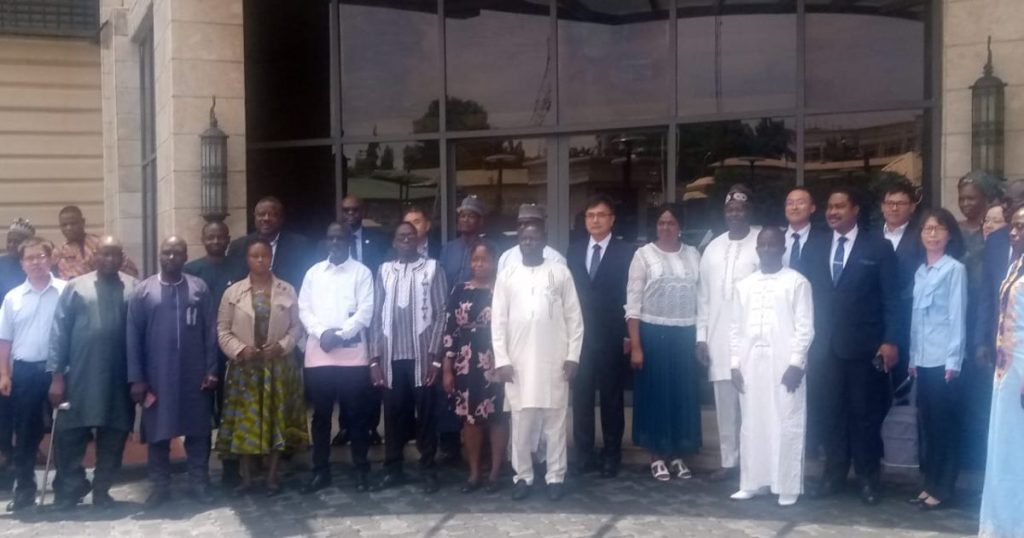
The National Space Research and Development Agency has launched Crop Watch, a satellite-based agricultural monitoring system, in collaboration with the United Nations Conference on Trade and Development and the Aerospace Information Research Center of the Chinese Academy of Sciences.
The launch event, held in Abuja on Tuesday, brought together international partners and stakeholders to address the critical issue of food security in developing countries.
The Director General of NASRDA, Dr Adepoju Mathew, emphasised the importance of science, technology, and innovation in advancing agricultural development and food security.
“The world population is projected to reach 9.5 billion by 2050, and food production must increase by 70 per cent to meet this demand,” The DG noted.
“Space Science, Technology, and Innovation play a crucial role in transforming agriculture and enhancing food security,” he added.
The Crop Watch system uses remote sensing and ground observation data to evaluate crop growth, yield, and related information at both national and global levels.
The system provides open and customizable agricultural production information services, enabling stakeholders to calibrate, localize, and automatically generate agro-climatic and agronomic indicators.
The Minister of Science, Innovation, and Technology, Uche Nnaji represented by the Permanent Secretary, Mrs. Esuabana Nko, highlighted the importance of partnership and collaboration in achieving food security.
“Food insecurity is a major issue in West Africa, and we must work together to address it,” she said.
The Crop Watch programme aligns with Nigeria’s mandate to ensure food security and liberate Nigerians from poverty and hunger.
The programme provides a platform for adapting to climate change and transforming agricultural production and food systems through technologies like aerial observation techniques.
The launch of Crop Watch marks a significant step towards achieving food security in Nigeria and the ECOWAS sub-region.
As Dr. Mathew emphasised, “By working together, we can achieve food security, improve livelihoods, and contribute to the overall development of our communities and nations.”
The Director of Asian and African Affairs at the Chinese Academy of Science, Prof. Bingfang Wu, announced plans to establish regional centres in West, North, and South Africa in partnership with UNESCO.
Speaking at the event, Wu shared his experiences in Nigerian politics and emphasised the importance of agricultural cooperation between China and Africa.
“We aim to promote agricultural development and food security in Africa through technology and innovation,” Prof. Wu said.
“Our regional centres will train trainers, develop models, and promote best agriculture practices, with a focus on Nigeria and West African countries,” he added.
Wu highlighted the ease of implementing grow water monitoring, which requires only minor changes and customization. He also announced the development of growing water APIs for easy monitoring, similar to online shopping.
“We are working with the Chinese government to unify APIs, enabling monitoring of crops, land, water, and environment,” he explained.
“Our edge computing platforms will ensure transparency and dissemination of data, and our large language model will support global monitoring, incorporating local languages and knowledge.”
The Chinese Academy of Science’s initiative aims to reduce constraints on computing infrastructure and storage, making global monitoring more efficient.
Wu expressed gratitude for the opportunity to share his experiences and emphasised the importance of international cooperation in achieving food security and sustainable agriculture.
“This partnership will bring significant benefits to African countries, enhancing their agricultural productivity and resilience. We look forward to working together to achieve our goals,” he added.
